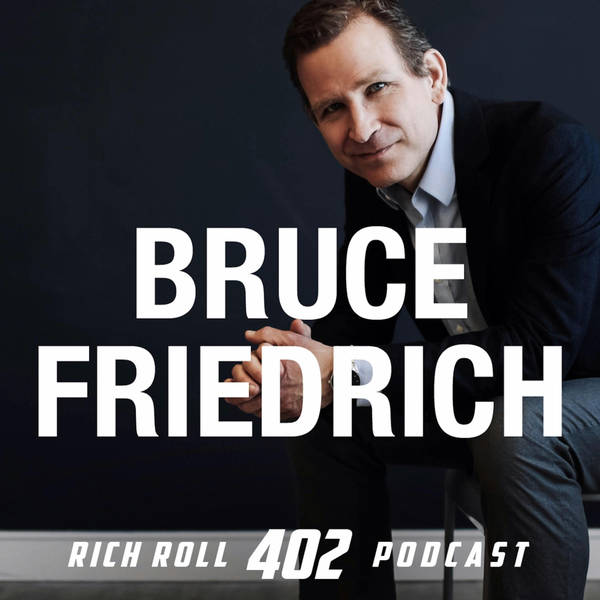
Bruce Friedrich On The Clean Meat Revolution
“Raising crops to feed animals so we can eat animals is vastly inefficient.”
Bruce Friedrich
7.5 billion people currently share this spinning blue planet we call Earth. By 2050, that number will escalate to 9.7 billion. By 2100? 11 billion.
How can we possibly feed 11 billion people sustainably?
To answer that question we must turn our gaze to the industrialization of animal agriculture. On the surface, what we commonly call factory farming appears incredibly efficient, creating massive economies of scale to feed the maximum number of people possible.
But in actuality, this industry is inexcusably inefficient and unsustainable long-term. It requires untold amounts of land, water and feed. It contributes more greenhouse gas emissions that the entire transportation combined. It's depleting our soil. It's polluting our water table. It's acidifying our oceans. It's making us sick. And it's driving the greatest mass species extinction in the history of mankind. In fact, 60% of all animal species have been rendered extinct in just the last 50 years.
We can't continue down this path. We desperately need a better way.
So let's talk about it. This week I sit down for a second conversation with Bruce Friedrich, a leading innovator in food systems and policy.
Bruce is the executive director of The Good Food Institute and founding partner of New Crop Capital, organizations focused on replacing animal products with plant and culture-based alternatives. He graduated magna cum laude from Georgetown Law and Phi Beta Kappa from Grinnell College, holds additional degrees from Johns Hopkins University and the London School of Economics and was inducted into the United States Animal Rights Hall of Fame in 2004.
A popular speaker on college campuses — including Harvard, Yale, Princeton, Stanford, and MIT — Bruce has appeared on NBC's Today Show, CNN, Fox News Channel, MSNBC, and Court TV.
Picking up where we left off in April 2017 (RRP 286), Bruce brings us up to speed on the rapidly evolving frontier of food technology and plant-based innovation, including a fascinating deep dive into the cutting edge of clean meat and the revolutionary science that is making possible the production of animal foods by way of cultured cells harvested without slaughter.
This is a conversation about the politics of agriculture and the subsidies, corporations, representatives and lobbyists that support it.
Bust mostly, this is about current advances designed to improve food systems in the interest of human, animal and planetary well-being.
Humanity currently faces an unprecedented, seemingly insurmountable environmental crisis. But Bruce casts an optimistic forecast — how technology, urgency and popular demand are rapidly converging to create healthy, sustainable and compassionate solutions to help solve our current food, health and environmental dilemmas.
Chock-a-block with incredible information, this exchange will leave you not only better informed on the aforementioned subjects, but inspired to invest more deeply in where your food comes from, how it impacts the precious world we share and how together we can forge the future of food for ourselves and generations to come.
Incredibly intelligent, considerate and measured, it was an honor to sit down with Bruce. I sincerely hope you enjoy the conversation.
Peace + Plants,
Rich
Hosted on Acast. See acast.com/privacy for more information.
